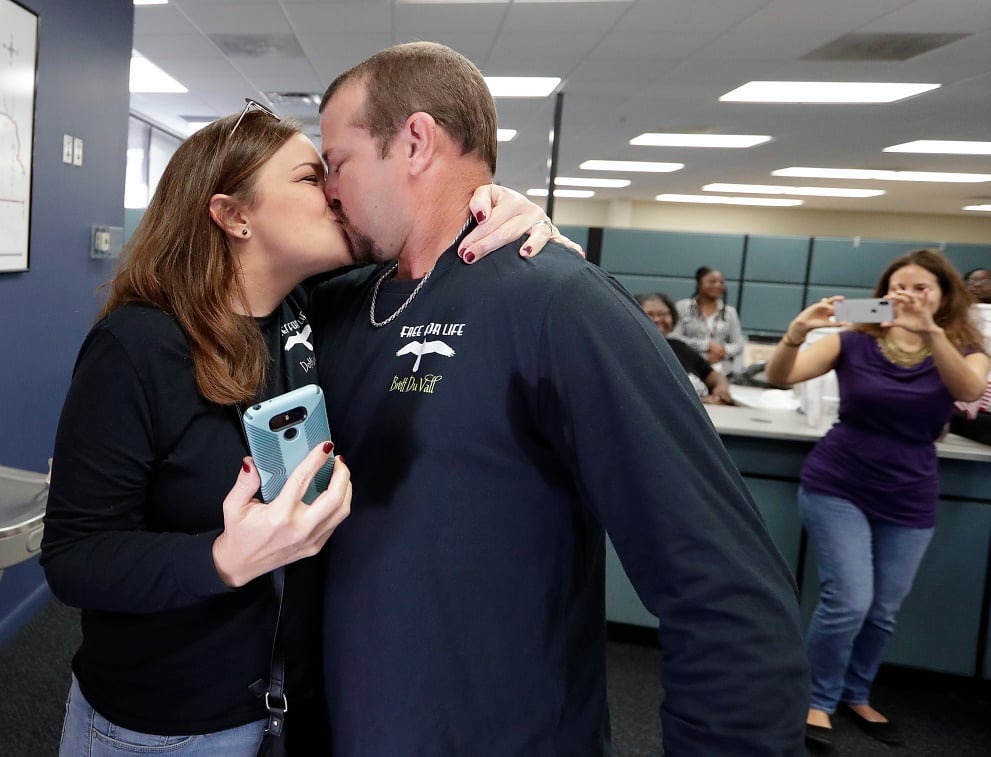ATLANTA (CN) —An attorney representing Florida asked an 11th Circuit panel Tuesday to overturn a ruling allowing some convicted felons to register to vote regardless of their inability to pay fines ordered as part of their sentences.
Pete Patterson of Cooper & Kirk urged the three-judge panel in Atlanta to throw out the lower court's order preventing the implementation of a Florida law requiring convicted felons to pay restitution, fines and other fees in full before their right to vote can be reinstated.
An injunction issued last October by U.S. District Judge Robert Hinkle in Tallahassee only applied to the 17 felons who filed a lawsuit challenging SB 7066, which was passed by Florida's Republican-controlled Legislature after voters overwhelmingly approved a constitutional amendment restoring voting rights to most felons following the completion of their sentence.
"It is rational for the voters of Florida to insist that re-enfranchisement be conditioned on paying restitution in full. The line that the people of Florida drew is the most rational line," Patterson told the panel.
The amendment, which restored voting rights to an estimated 1.4 million felons, did not specifically mention restitution or fines, instead using the phrase “completion of all terms of sentence.”
According to Hinkle's ruling, "80% of otherwise-eligible felons have unpaid fines, restitution, or other financial obligations imposed at the time of sentencing."
Attorneys representing the group of convicted felons – who allege SB 7066 violates their equal protection rights under the 14th Amendment – urged the 11th Circuit to uphold the lower court's "narrow and thoughtful" order.
"Assuming we have to review this through the principle of rational basis... If they can't make restitution, how is it rational to denude them of reinstatement?" Senior U.S. Circuit
Judge Stanley Marcus, a Bill Clinton appointee, asked Patterson Tuesday.
"Insofar as you ask whether it's rational not to re-enfranchise someone who simply cannot pay... What interest of the state is being served? It doesn't make anyone whole," Marcus continued.
"No one is being punished," Patterson insisted.
"What is the legitimate interest in keeping people from voting on the grounds that they can't pay?" asked Senior U.S. District Judge Barbara Rothstein, a Jimmy Carter appointee sitting by designation from the Western District of Washington.
Patterson replied that the state's interest is in ensuring that it receives the money it is owed.
Senior U.S. Circuit Judge R. Lanier Anderson, another Carter appointee, said that’s “like trying to get blood out of a stone."
"We are, in this case, re-enfranchising a felon who was convicted of crime X... He has assets, he's paying his $1,000 fine, he serves probation and can vote. Another felon committed the same crime and has the same probation, but he can't pay, he can't vote. It's the same situation," Anderson said, adding that the second felon in the hypothetical scenario is being punished on account of his poverty.
"What if a felon is so disabled he cannot perform community service? If he hasn't met the conditions [of his sentence], he can't be re-enfranchised. Is that rational?" Marcus asked.
Patterson replied that it would be rational, telling the panel that "the line is completion of all terms of sentence" and explaining that a person who cannot complete court-ordered community service due to a disability cannot meet the conditions for re-enfranchisement.
Julie Ebenstein, an attorney for the American Civil Liberties Union who represents the convicted felons, responded to Patterson's arguments Tuesday by telling the panel that "wealth cannot be the determining factor in whether someone can participate" in elections.
"The state of Florida has said there's minimal collection expectation as to those debts... All evidence in the record shows the state doesn't expect to get paid back for two-thirds of that debt," Ebenstein said, noting that the 17 felons in the case have presented uncontested evidence that they are unable to pay their fines.
Danielle Lang, an attorney for the Campaign Legal Center who also represents the plaintiffs, said that under one felon's current payment plan, they won't be able to vote for at least another decade.
On rebuttal, Patterson told the panel that the law does not discriminate against felons on the basis of indigence because "a person could be a multi-millionaire and still not be able to pay," referring to one felon who owes $52 million in outstanding restitution and fines.
"Saying these plaintiffs can vote would cause irreparable harm to the state of Florida and to rightful Florida voters," Patterson said.
Although the panel did not indicate when it would reach a decision in the case, it is likely that a ruling will be issued ahead of the Feb. 18 deadline to register for Florida's March 17 presidential primary election.
Subscribe to Closing Arguments
Sign up for new weekly newsletter Closing Arguments to get the latest about ongoing trials, major litigation and hot cases and rulings in courthouses around the U.S. and the world.









